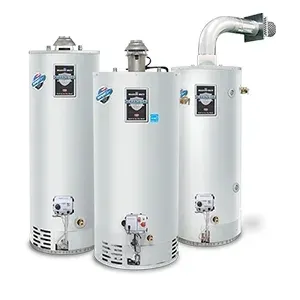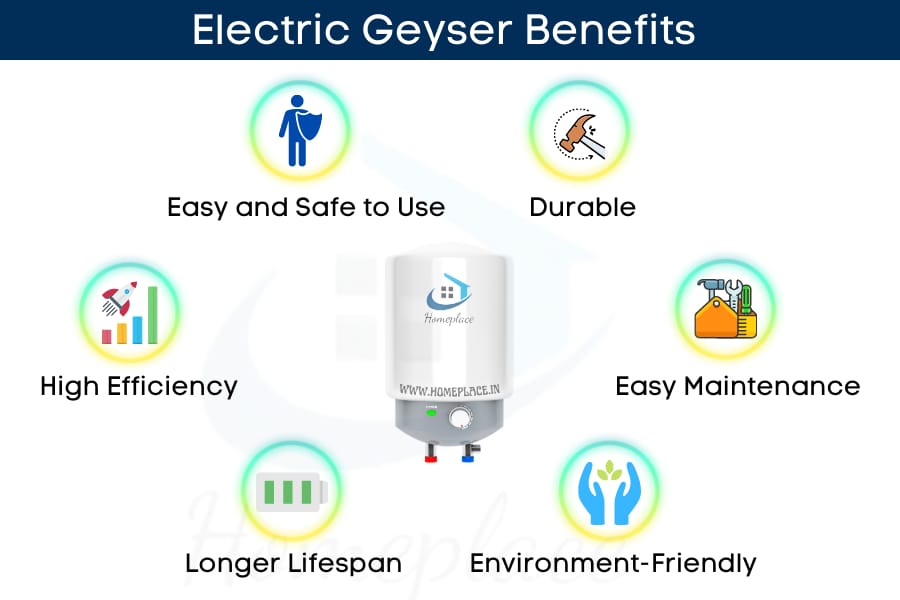Geysers: Ensuring Warmth and Comfort...!!!
Geysers are indispensable appliances that provide hot water for a wide range of domestic, commercial, and industrial applications. With various types available, users can choose the most suitable geyser based on their specific needs and preferences.

Geysers, also known as water heaters, are essential appliances that provide hot water for various domestic and industrial purposes. They come in different types, each employing specific technologies and methods to heat water. Here’s a comprehensive look at geysers, their types, and their uses.
Types of Geysers
1. Electric Geysers:
-
Technology: Electric geysers use electrical heating elements to heat water. When switched on, electricity flows through the heating elements, which then transfer heat to the water stored in the tank.
-
Uses: Commonly used in households for activities such as bathing, washing dishes, and laundry. They are known for their efficiency and ease of installation.
2. Gas Geysers:
-
Technology: Gas geysers use natural gas or LPG (liquefied petroleum gas) as the energy source to heat water. A burner at the base of the geyser heats the water as it flows through a heat exchanger.
-
Uses: Provide an instant supply of hot water and are often used in homes and commercial establishments. They are favored for their cost-effectiveness and quick heating capabilities.
3. Solar Geysers:
-
Technology: Solar geysers use solar energy to heat water. They consist of solar panels or collectors that capture sunlight and convert it into heat. The heated water is then stored in an insulated tank for use.
-
Uses: Ideal for environmentally conscious users and are widely used in regions with abundant sunlight. They are energy-efficient and help reduce electricity bills.
4. Instant Geysers:
-
Technology: Instant geysers, also known as tankless water heaters, heat water on demand without storing it in a tank. They use either electric elements or gas burners to heat the water as it passes through the unit.
-
Uses: Suitable for small households or areas with limited space. They provide a continuous supply of hot water and are energy-efficient since they do not require a storage tank.

5. Storage Geysers:
-
Technology: Storage geysers have an insulated tank that stores hot water for later use. The water is heated using electric elements or gas burners and remains hot in the tank until needed.
-
Uses: Commonly used in homes and commercial establishments where a constant supply of hot water is needed. Suitable for large families and places with high hot water demand.
Uses of Geysers
1. Domestic Uses:
-
Bathing: Provide hot water for bathing, ensuring comfort during cold weather. Essential in households, especially in regions with cold climates.
-
Cooking and Cleaning: Hot water from geysers is used for various cooking and cleaning tasks, such as washing dishes and sanitizing kitchen surfaces.
-
Laundry: Supply hot water for laundry, helping to remove tough stains and ensuring hygienic cleaning of clothes.
2. Commercial Uses:
-
Hotels and Restaurants: Crucial in the hospitality industry, providing hot water for guest rooms, kitchens, and laundry services.
-
Healthcare Facilities: Hospitals and clinics use geysers to supply hot water for sterilization, cleaning, and bathing purposes.
-
Salons and Spas: Provide hot water for hair treatments, facials, and other beauty services, ensuring a comfortable experience for clients.
3. Industrial Uses:
-
Manufacturing: Industries use geysers for processes that require hot water, such as cleaning, dyeing, and chemical production.
-
Agriculture: Used in agricultural operations, such as dairy farming, to provide hot water for cleaning and sterilizing equipment.

Benefits of Using Geysers
1. Convenience and Comfort:
-
Geysers provide an instant and continuous supply of hot water, ensuring convenience and comfort for users. Essential for daily activities such as bathing and cleaning.
2. Energy Efficiency:
-
Modern geysers are designed to be energy-efficient, helping to reduce electricity or gas consumption. Solar geysers, in particular, offer significant energy savings by using renewable solar energy.
3. Safety:
-
Equipped with safety features such as thermostats, pressure relief valves, and temperature controls to prevent overheating and ensure safe operation.
4. Cost Savings:
-
While the initial cost of a geyser may be high, the long-term savings on energy bills make them a cost-effective choice. Solar geysers, for example, significantly reduce electricity costs.
5. Environmental Impact:
-
Solar geysers and energy-efficient electric and gas geysers help reduce the carbon footprint by minimizing energy consumption. Contribute to environmental sustainability by using renewable energy sources and reducing greenhouse gas emissions.
Geysers are indispensable appliances that provide hot water for a wide range of domestic, commercial, and industrial applications. With various types available, users can choose the most suitable geyser based on their specific needs and preferences. The benefits of using geysers, including convenience, energy efficiency, safety, cost savings, and environmental impact, make them a valuable addition to any setting. Embracing modern and energy-efficient geysers ensures a comfortable and sustainable future.
What's Your Reaction?

















